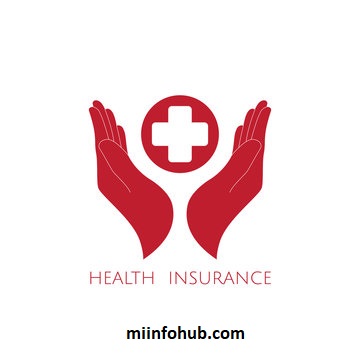To sell health insurance successfully is both rewarding and profitable. By providing essential coverage, you help people protect their health and finances. With the right strategy, you can tap into a growing market, build trust, and expand your business.
Success in selling health insurance comes from staying informed, offering great customer service, and adapting to changing regulations. By focusing on your clients’ needs, you can excel as a health insurance agent and create a lasting impact. Embrace these principles to thrive in this dynamic and vital industry.
Getting Licensed To Sell Health Insurance
To sell health insurance, securing a valid license is your first critical step. This process typically begins with completing a state-approved pre-licensing course. This course covers essential insurance concepts, ethics, and regulations that every agent needs to understand.
After finishing the course, you will need to pass a state exam. This exam tests your understanding of health insurance laws, various policy types, and industry standards. Keep in mind that each state has its own set of requirements, so be sure to familiarize yourself with the specific criteria in your region.
Once you pass the exam, you can apply for your official license through your state’s insurance department. Additionally, many states require background checks and ongoing education to maintain your license. Staying compliant with these requirements ensures that you remain a qualified and trusted agent, capable of offering the best health insurance solutions to your clients as you sell health insurance effectively. If you’re interested in understanding the effects of social media on mental health then click here.

Choosing The Right Niche To Sell Health Insurance
Choosing the right niche in health insurance is essential for success. Instead of trying to serve everyone, focus on a specific segment of the market. You might target individuals, families, small businesses, or specific demographics like seniors or young professionals. Specializing in a niche allows you to tailor your approach, deepen your expertise, and offer more personalized solutions.
For instance, if you specialize in small business health plans, you can build strong relationships with business owners and become their go-to advisor. Similarly, focusing on Medicare plans for seniors lets you provide targeted advice and navigate complex government regulations. By selecting the right niche, you position yourself as an expert in that area, making it easier to build trust, increase sales, and grow your reputation as you sell health insurance effectively.
Partner With Reputable Insurance Companies
Teaming up with well-established and reputable insurance companies is crucial for your success in selling health insurance. Clients are more likely to trust you when you offer plans from recognized brands that they know and rely on. Working with top-tier insurance providers not only enhances your credibility but also gives you access to a broad range of quality products tailored to meet diverse client needs.
These partnerships often come with valuable support, such as marketing materials, training, and customer service tools, which can make your job easier and more efficient. Additionally, reputable companies tend to have better claim processes and customer satisfaction, which will reflect positively on you as an agent. By aligning yourself with trusted names in the industry, you ensure that your clients receive the best coverage, while you build long-term relationships and maintain a solid reputation.
Master The Health Insurance Policies
A deep understanding of the health insurance policies you sell is essential for building trust and credibility with clients. You need to be familiar with every detail of the plans you offer, including coverage options, deductibles, premiums, co-pays, and exclusions. This allows you to explain the differences between various policies and help clients choose the best plan for their specific needs.
Clients rely on your expertise to clarify complex insurance terms and make informed decisions. By mastering the policies, you can confidently answer questions, address concerns, and provide clear guidance. This not only improves your sales effectiveness but also ensures that clients are fully informed and satisfied with their choices. The more knowledgeable you are, the more value you bring to your clients, strengthening your reputation as a trusted advisor in the health insurance market.
Build A Strong Online Presence To Sell Health Insurance
Establishing an online presence is vital for reaching more potential clients and growing your health insurance business. Start by creating a professional website that showcases your services, expertise, and the different health insurance plans you offer. Include valuable content such as blogs, FAQs, and guides to help visitors understand health insurance better.
Optimize your website for search engines (SEO) to increase visibility on Google. Use relevant keywords like “health insurance agent” or “affordable health plans” to rank higher in searches. Additionally, stay active on social media platforms like LinkedIn, Facebook, and Twitter to engage with potential clients, share tips, and build trust.
An online presence also allows you to provide quick, informative responses to inquiries, making it easier for clients to contact you. By being accessible and visible online, you can establish yourself as an expert in the industry and attract a wider audience.

Leverage Referral Networks
Utilizing referral networks is a powerful strategy for expanding your client base in the health insurance industry. Building relationships with other professionals—such as financial advisors, real estate agents, and healthcare providers—can lead to valuable referrals. These professionals often encounter individuals or families seeking health insurance, and when they trust your expertise, they are more likely to recommend you.
To foster these relationships, consider offering educational workshops or seminars on health insurance topics. This positions you as an authority while providing valuable insights to potential partners. Additionally, maintaining open lines of communication with your referral network is essential. Regularly update them on any changes in your services, and don’t hesitate to ask for referrals when appropriate.
Moreover, incentivizing referrals can be effective. Consider offering a small token of appreciation or rewards for successful referrals. By nurturing these connections and fostering mutual benefits, you can create a robust referral network that continuously brings in new clients and enhances your reputation in the health insurance market.
Stay Updated On Regulations
Staying informed about the latest regulations in health insurance is crucial for your success as an agent. The insurance landscape is continually evolving, with changes in laws, policies, and compliance requirements. Being up-to-date ensures you can provide accurate information to your clients and protect them from potential pitfalls.
To keep yourself informed, regularly check resources from your state’s insurance department and follow industry news. Joining professional associations and attending workshops or conferences can also provide valuable insights into upcoming changes and trends. Networking with other agents allows you to exchange information and learn from their experiences.
Additionally, consider enrolling in continuing education courses. Many states require ongoing education to maintain your license, which can further deepen your understanding of complex regulations. By staying updated, you not only enhance your credibility but also position yourself as a knowledgeable resource for clients, helping them navigate the often-complicated world of health insurance with confidence.
Provide Outstanding Customer Service
Delivering excellent customer service is essential in the health insurance industry. Clients often face complex decisions regarding their health coverage, and they appreciate guidance and support. By prioritizing their needs and concerns, you can build strong relationships that foster trust and loyalty.
Start by being accessible and responsive. Make it easy for clients to reach you via phone, email, or social media, and ensure prompt responses to their inquiries. Actively listen to their questions and concerns, demonstrating that you value their input and are dedicated to finding the best solutions for them.
Additionally, guide your clients through the entire process—from selecting a policy to filing claims. Explain the details of their coverage in simple terms, ensuring they fully understand their options. Follow up after the sale to ensure satisfaction and address any lingering questions.
Incorporating these practices not only enhances the customer experience but also encourages referrals and repeat business. By establishing a reputation for outstanding service, you can differentiate yourself in a competitive market and create a loyal client base.
Master Effective Sales Techniques
Mastering effective sales techniques is vital for success in the health insurance industry. Your ability to connect with clients, understand their needs, and present suitable solutions can significantly impact your sales performance. Here are some key techniques to enhance your sales skills:
- Active Listening: Pay close attention to what your clients are saying. This helps you understand their concerns and preferences, allowing you to tailor your pitch to meet their specific needs.
- Build Rapport: Establishing a personal connection with clients can make a big difference. Use open body language, maintain eye contact, and engage in small talk to create a comfortable atmosphere.
- Ask Open-Ended Questions: Encourage clients to express their thoughts and concerns by asking questions that require more than just a yes or no answer. This approach fosters conversation and reveals valuable insights about their preferences.
- Educate Your Clients: Position yourself as an expert by providing valuable information about health insurance options. Clear explanations of complex concepts build trust and empower clients to make informed decisions.
- Overcome Objections: Be prepared to address common objections. Listen to concerns and respond with relevant information that reassures clients and highlights the benefits of the policies you’re offering.
- Follow-Up: Don’t underestimate the power of a follow-up. A simple check-in can remind clients of your services and show that you care about their well-being. It also opens the door for future discussions or referrals.

Attend Industry Events To Sell Health Insurance
Participating in industry events is a valuable opportunity to expand your knowledge, network, and grow your health insurance business. These gatherings provide insights into market trends, regulations, and emerging technologies that can impact your practice.
- Networking Opportunities: Events like conferences, trade shows, and seminars are perfect for meeting other professionals in the field. Engaging with peers, industry leaders, and potential clients can lead to valuable partnerships and referral opportunities.
- Educational Sessions: Many industry events offer workshops and presentations on various topics, from sales strategies to regulatory updates. Attending these sessions allows you to stay informed and enhances your expertise, making you a more knowledgeable resource for your clients.
- Product Knowledge: Exhibitions often feature the latest products and services from various insurance companies. Familiarizing yourself with new offerings can help you provide better options for your clients.
- Visibility: Being present at industry events increases your visibility in the market. It positions you as an engaged professional who is committed to staying updated and improving your skills. This can enhance your reputation among peers and clients alike.
- Inspiration And Motivation: Engaging with like-minded professionals can be inspiring. Sharing experiences and learning about others’ successes can motivate you to implement new strategies and ideas in your own business.
Utilize Lead Generation Tools
In today’s digital age, using lead generation tools is essential for efficiently growing your health insurance business. These tools help you identify and connect with potential clients, streamlining your sales process. Here are some effective strategies to consider:Online Marketing Platforms: Use platforms like Google Ads and Facebook Ads to target specific demographics. Tailor your ads to reach individuals seeking health insurance, ensuring your message resonates with their needs.
- Landing Pages: Create dedicated landing pages that highlight specific health insurance products or services. Include compelling calls to action (CTAs) to encourage visitors to request more information or schedule consultations.
- Email Marketing: Build an email list of prospects and existing clients. Use email campaigns to share valuable information, such as health tips, policy updates, and promotional offers. This keeps you top-of-mind and nurtures relationships.
- Social Media Tools: Leverage social media platforms to engage with your audience. Share informative content, answer questions, and connect with potential clients. Tools like Hootsuite can help you schedule posts and track engagement.
- CRM Software: Customer Relationship Management (CRM) tools, like HubSpot or Salesforce, can help you manage leads effectively. These systems allow you to track interactions, set reminders for follow-ups, and analyze your sales pipeline.
- Webinars And Online Workshops: Hosting webinars on relevant topics can attract potential clients and establish you as an expert. Promote these events through social media and email to generate interest and collect leads.
Monitor Your Performance
Monitoring your performance is crucial for success in the health insurance industry. Regularly assessing your activities and outcomes allows you to identify strengths, weaknesses, and areas for improvement. Here are some effective strategies to help you track your performance:
- Set Clear Goals: Establish specific, measurable, achievable, relevant, and time-bound (SMART) goals. Whether it’s the number of policies sold, client retention rates, or revenue targets, having clear objectives provides direction.
- Use Analytics Tools: Implement analytics software to track key metrics such as lead conversion rates, customer acquisition costs, and overall sales performance. Tools like Google Analytics and CRM systems can provide valuable insights into your business performance.
- Evaluate Sales Techniques: Review your sales techniques regularly. Analyze which methods yield the best results and which need adjustment. This can help you refine your approach to maximize effectiveness.
- Gather Client Feedback: Encourage clients to provide feedback on their experience. Use surveys or follow-up calls to understand their satisfaction levels. This information can highlight areas where you excel and where improvement is needed.
- Conduct Regular Reviews: Set aside time each month or quarter to review your performance against your goals. Assess what worked well and what didn’t, allowing you to make informed adjustments moving forward.
- Adjust Strategies As Needed: Based on your performance analysis, be prepared to pivot your strategies. If certain tactics are not yielding results, explore new approaches or refine your existing methods to enhance effectiveness.
Conclusion
Choosing the right niche is crucial for those looking to sell health insurance successfully. By focusing on a specific market segment, such as individuals, families, small businesses, or particular demographics, you can tailor your services to meet their unique needs. This specialization allows you to deepen your expertise and build trust with your clients.
Whether you decide to target small business health plans or Medicare options for seniors, establishing yourself as an expert will make it easier to connect with clients and offer valuable advice. By honing in on a niche, you not only enhance your credibility but also increase your chances of boosting sales and growing your reputation in the industry. Embrace the power of niche marketing, and you will find greater success in your health insurance career.


